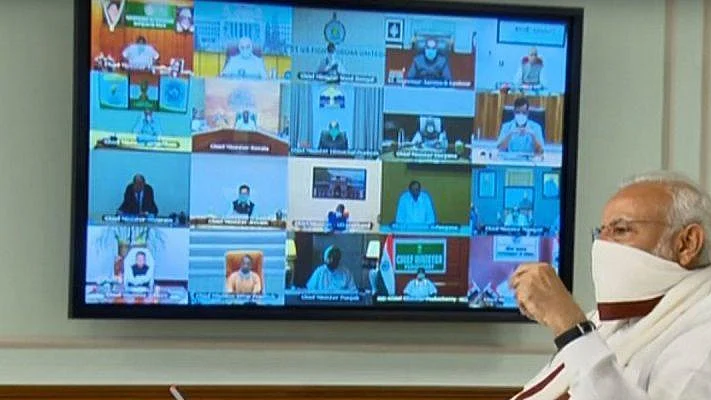PM Modi’s discomfort with non-BJP CMs is hurting the very concept of cooperative federalism
With killer COVID at large, Centre and states need to work together. All political parties need to rise above their electoral mindsets and work together. This is no time for ego and playing politics

West Bengal chief minister Mamata Banerjee and the Central government led by Prime Minister Narendra Modi do not leave any opportunity to settle political scores with each other. One can understand the bitterness between the political parties during the elections. After a landslide victory in Bengal, the campaign heat has not come down even as the post-poll violence and the vendetta politics continues from both sides.
After the election results in West Bengal, the CBI arrested four Trinamool leaders. Eyebrows were raised when the Centre last week recalled the Chief Secretary without consulting the Chief Minister. And on Monday, the Centre served a chargesheet to him even though he took his due retirement and was appointed as chief adviser to the Bengal government by Mamata.
Mamata has been complaining about the way Modi has been treating non-Congress chief ministers in COVID review meetings. “We feel insulted and humiliated. A dictatorship is going on. The Prime Minister is feeling so insecure that he did not even listen to the chief ministers. What is this fear about?" Mamata Banerjee asked.
Going down the memory lane, the Nehru era did not witness such behaviour as most Congress chief ministers ruled the states. Their relationships were cordial. Prime Minister Nehru regularly kept in touch with the chief ministers, keeping them informed of his tackling of various situations.
Nehru’s successor Lal Bahadur Shastri ruled for a brief period and had to face a Pakistan war as well as other problems. After Indira Gandhi succeeded Shastri, the number of non-Congress chief ministers also began to grow.
Tamil Nadu was one example where the chief minister Karunanidhi confronted Indira Gandhi combining along with with non-Congress chief ministers. Karunanidhi did not have good relations with Prime Minister Chandrashekhar also.
AIADMK founder M. G. Ramachandran followed a dictum of being on the right side of the Centre even during the Morarji Desai government. He had a comfortable relationship with Mrs. Gandhi.
His disciple Jayalalithaa had a cordial relationship with both Indira Gandhi and Rajiv Gandhi but she confronted P.V. Narasimha Rao and the first BJP Prime Minister Atal Behari Vajpayee. She even pulled down Vajpayee’s government in 1998 though she was an ally of the NDA. Jayalalithaa also broke the protocol by not seeing off Vajpayee in 1999 when he visited Tamil Nadu. She deliberately went out of Chennai.
During P.V. Narasimha Rao’s time, she was annoyed for appointing Dr. Chenna Reddy as Tamil Nadu governor. There was a war of words between the two. She demanded the recall of the governor but Rao did not agree.
Modi too is clearly not comfortable with non-BJP chief ministers. Just last month, he objected to Delhi chief minister Kejriwal showing a live COVID review meeting between him and the chief minister. Chiding him, Modi said, “Let me say this is strictly against our tradition, our protocol. “
Bad vibes between some chief ministers and governors are also not something new. West Bengal, Maharashtra, Puducherry and Delhi are examples where the chief ministers and the governors have seen a running battle.
Modi had been talking about cooperative federalism and competitive federalism as well as “Team India”. Cooperative federalism is a concept which reflects the relationship between the Centre and the states where both come together and resolve common problems.
Modi was successful last year when he took the chief ministers on board to implement his COVID strategy. But in 2021, with elections to five states, politics took over. Non-BJP states have complained about the scarcity of oxygen and vaccination shortage and some like the Delhi government have even gone to court.
Unfortunately, confrontation has replaced consensus with the growing number of regional satraps. Modi knows that his real challenge comes from the regional satraps.
Politics has trumped economics in India’s story of cooperative federalism. With the killer COVID at large, this is the time for the Centre and states to work together. For this, political parties need to rise above their electoral mindsets and work together. This is no time for ego and playing politics.
(IPA Service)
Views are personal
Follow us on: Facebook, Twitter, Google News, Instagram
Join our official telegram channel (@nationalherald) and stay updated with the latest headlines
